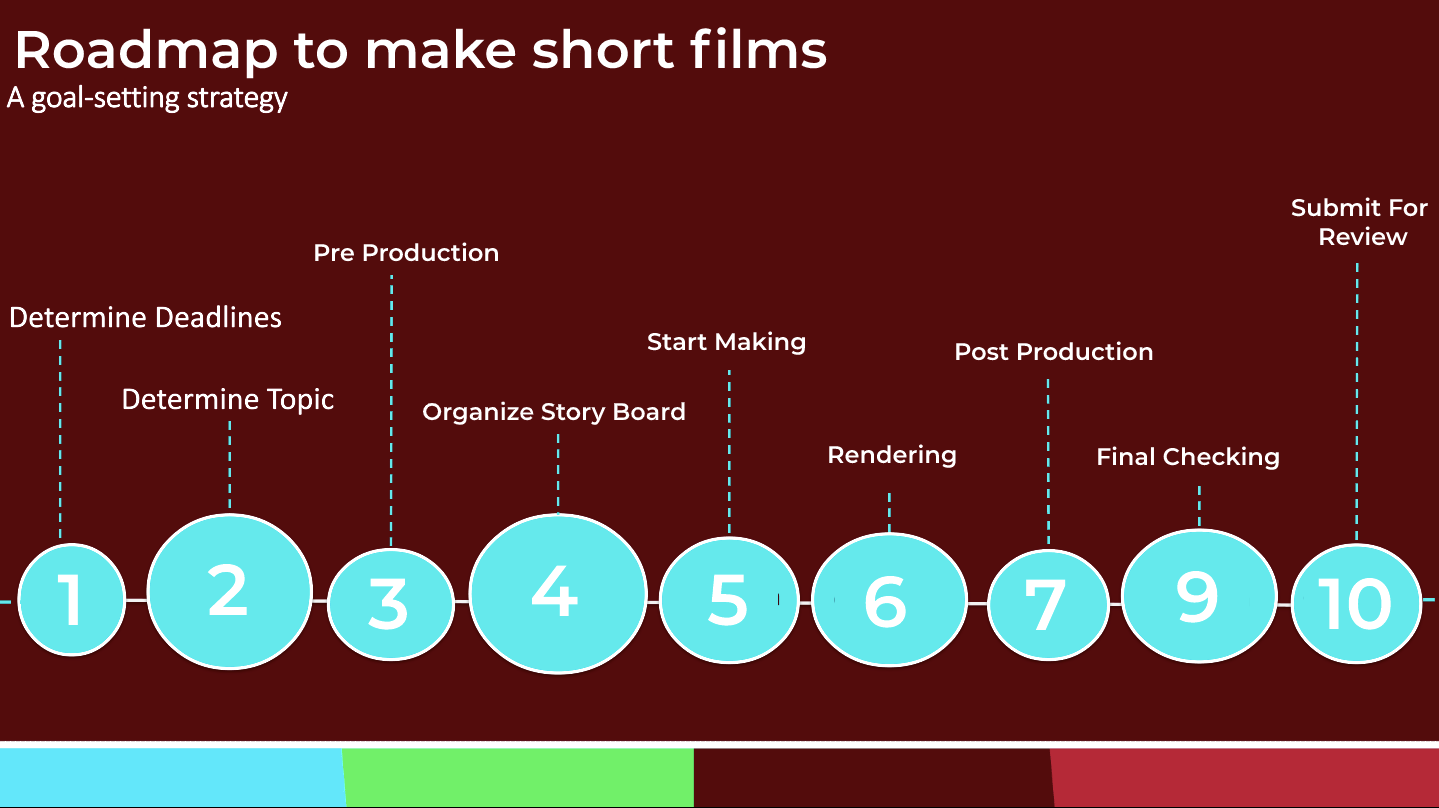


Do you find yourself under a lot of pressure when making your own short film? Do you have trouble building a pathway towards your goal? Do you find it difficult to visualize the necessary steps needed to complete your short film?
If you answered “yes” to any of these questions, then short film planning guide might be for you. The essence of this planning is applying a retrospective approach to visualizing all the critical steps needed to complete your short film at HiTech2050.
Studies show that this type of planning helps students to:

These are the weeks where you have multiple deadlines all at once. You may find yourself working on an environment, lighting, and materials that are all due on the same week. This will be very stressful and would mean that you are doing too much at once. HiTech2050 planning method is meant to help you plan ahead and make your “hard weeks” more manageable. Since you would never want to be in survival mode, always prepare and strategize!
Identify required tasks/assignments you will be given throughout the term.
Define what the goal of the assignment is and what exactly is being asked of you.
Is there a breakdown of points or a rubric? It is important to know exactly what the instructor is looking for to know what you should be focusing on when creating your assignment.
Split the assignment into various steps or phases, if the instructor has not already done so. Determine how much time should be allotted for each phase based on their difficulty and grade weighting.
For example, brainstorming might be a shorter first phase, creating characters and environment longer second phase and so on rendering and so forth. Be specific and intentional about what each phase entails.
Decide when you wish to have each phase completed between now and when the assignment is due. Give yourself more than enough time to complete the phase as a cushion to minimize stress for yourself. Try your best to avoid “hard weeks” when you have lots of other commitments. Keep in mind when you are most productive. If weekends are when you get most of your work done, aim to have a phase completed by the following Monday.
Navigate to your most used calendar, whether that be the Calendar widget on our E-Learning Portal, your Outlook calendar, Google calendar, etc. If possible, set reminders on the calendar to get notifications when a phase deadline is coming up so that you do not forget.
This may be from your peers or from your instructors/teachers to ensure your timelines are reasonable and achievable. It is important to remember change is inevitable and, therefore, do not be afraid to adjust dates as the semester goes on and things come up.